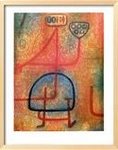In a word, I got Facebooked. A group of students put out an online bolo on me, and it’s taken me some time to process the charge, especially in light of what I was preparing to post. If you recall, I had promised to put the Daphne Merkin-Laura Kipnis disagreement to bed with a discussion of Christopher Marlowe and Walter Raleigh, and, more specifically, with some reflections on the dynamics of the university lecture.
You see (or alas?), I just censored myself. Full disclosure: I was initially going to write on the erotics of lecturing. No, not on how I present myself sexually in the classroom: heaven – which is to say, my dignity and my tenure file – forbid.
Rather, in my view, the Merkin-Kipnis dispute turned on the relationship between gender decora and standards of writing. Merkin, known (to her chagrin) for a piece on spanking that appeared in The New Yorker, chastened Kipnis for writing in the kind of chatty girl-talk that Merkin deemed unfit for a serious argument. Kipnis, known (to her delight?) for her unconventional views on sexual fidelity, claimed that adopting girly-mag prose enabled her both to countenance and counteract its rhetorical frailty.
Am I sounding academic yet? Yes, academic prose, too, has its own standards and decora, often functioning to veil, and thereby diminish, heady ideas, even as it appears to trump them up. It’s hard to get it right (whatever the idiom).
For my part, I had planned to use the Marlowe and Raleigh poems – poems I lectured on this term – not only to reexamine each writer’s claims, but also to share how these matters of discourse figure in my own classroom. I had not planned, of course, for my own students to coopt – wittily, though provocatively – the very “love poems” we had studied in class in order to figure me, of all people, as an object of desire. Again, full disclosure here: the students’ site was titled “Gwynn Dujardin is a FOXXX!!!” (groan); and each member of the group, roughly a dozen, of mixed gender, was tagged by a quote from a sixteenth-century poem, slyly rewritten to address me.
As I noted in my online response to the site – professionally and pedagogically, I felt it warranted a response – the syllabus coverage was pretty impressive. Skelton, Wyatt, More, Spenser, Sidney, Marlowe, Shakespeare, Wroth – nearly all the authors we had read were represented. What’s more, the lines they excerpted were key ones, phrases on which our own readings turned. Finally, and most important, the way the students adapted those lines to the occasion at hand testified, at some level, to their understanding of a critical theme of the course: that sixteenth-century authors reform the language of their immediate and classical predecessors in the service of a revised understanding or goal.
As we had discussed, “love is not love” in Elizabethan “love poetry,” but a vehicle for exploring the power(s) of writing. When Philip Sidney opens his seminal sonnet sequence by writing, “Loving in truth, and feign in verse my love to show,” the word "feign" is central both to the line and the 107 sonnets that follow. That is, the speaker may claim to love “in truth,” and desire “to show” that love “in verse,” but feign reads doubly, suggesting both the poet’s eagerness to show, or disclose, his love in verse, as well as his recognition that verse, or writing itself, is a form of “feigning,” a kind of fiction or untruth.
Addressing poems to a cruel mistress who refuses to requite the speaker’s love (N.B. Shakespeare is a notable exception here), Elizabethan poets assume the pose of unrequited lover in order to reflect on the powers of language – that is, on the possibility to “move” readers, in desired ways, through writing. Indeed: were the poets’ love to be consummated, there would be nothing more to write. With this in mind -- and this is addressed to the academics in my audience -- who needs Lacan to teach us about desire in language? (For my non-academic readers, see Robin Williams in The Dead Poets Society, on the idea that the purpose of poetry is to “woo women”).
Marlowe’s “The Passionate Shepherd to His Love” is “about” – pronounced a-boot up here, of course -- desire in language. On first reading, the poem could not appear more benign: in the poem, a shepherd attempts to entice “his love” by entreating her, tempus fugit-carpe diem style, to join him in the serene “pleasures” of pastoral life. Yet those “pleasures” are rendered serene through language, indeed through mellifluous verse. In this respect, the phrase “a thousand fragrant poesies” is central here, in that posies are not only flowers, part of the pastoral landscape, but also a pun for poesy, or English poetry. Concluding “and if these pleasures may thee move,/come live with me and be my love,” the poet is not merely “feeding her lines” with promises of earthly pleasures, but asking “if these pleasures,” or lines of poetry, are compelling enough to “move” her, or his readers, to "come."
When I planned to write on these poems here last week, I was going to share a moment from class when I “lowered myself” -- as Daphne Merkin would have it -- responding to a student’s skepticism that a “belt of straw” would appeal to the poet’s “love.” Off the cuff, I responded something like: “No, in Pastoral-land, straw belts are serious bling.” I was almost embarrassed by the pronounced laugh the line got (after all, I aspire to “teach and delight,” not audition for Second City). But Merkin’s irritation at Kipnis’s colloquialisms got me wondering whether I am too glib in class – that is, whether I pander to my own audience by using terms unbefitting a thirty-nine-year-old (i.e., “ye olde”) professor of English Renaissance literature.
Imagine my pause, then, when I subsequently viewed “my” page, in which one of my student’s tag-lines reads “[student’s name] wants to live with Gwynn and be her love” -- and the rest, even more clever, follow in kind. Oh, I was moved all right. To don the nearest burlap sack.
In effect, I went from weighing the importance of register and diction, a key matter of dispute between Merkin and Kipnis, to experiencing, quite acutely, the stakes for women whose professions trade (and I am quoting myself here) on techniques in withholding and revelation, concealment and display. For the erotics of lecturing does not refer to any sexual pose I strike in the classroom (again, heaven forbid), but to the fact that lecturing, like writing, involves deciding what information to put forward or hold back, when to suppress, when to disclose -- so that students may choose to “come live with me” in being moved, or persuaded, by my talk. As a writer selects his or her words carefully and attempts to pace the flow of information, like verse, so, too, do I measure carefully how I conceive and impart my material so as to bring my students to a desired result.
Upon witnessing my own "foxxxy" online exposure, I immediately worried that I had somehow revealed too much.
I eventually got over my spanking discomfiture, however, when I saw how deftly the students had reworked the poems, and *understood that I was not the object of their desire but rather a vehicle for engaging with the dis-course of the course (that is, just as "love is not love," the "foxxx is not a fox"). I am passionate about the course material, and devoted to teaching it: no doubt. If they're feeding intellectually off that affect, I can't complain. And I realized, too, that my students were merely carrying out online the kind of discussion my peer group would have conducted (and did!) over a late-night twelve-pack in the dorms: only the forum differs.
But in deciding to deem me “DUna,” the student’s lesson, or what I should learn from their disclosure, became clear. That is, “DUna” puns on the first syllable of my last name (DUjardin) and Una, the character Edmund Spenser assigns to direct the Red Crosse Knight through Book I of The Faerie Queene. Representing England (and ultimately deemed St. George, as in “and the dragon”), the Red Crosse Knight must heed the guidance of Una, the “one true faith” (in sixteenth-century England, aka Protestantism), to complete his journey towards self-realization. Una has an alter, though, in DUessa, a Circe figure who waylays the epic hero from his quest via pleasures unmistakably associated with the powers of poetry. Una and Duessa – one v. two; virgin v. whore; faith v. heresy; truth v. feigning ; reality v. poetry; Merkin v. Kipnis – this ancient dualism underwrites the Merkin-Kipnis dispute and reveals the stakes for scribbling women of any political or historical stripe.
Siding ultimately with Kipnis – I think (all knowledge is provisional) – I think “bling” worked, in that it worked to “move” my students to a desired, favorable, and, most important, mutual end, in understanding how pastoral symbols, while benign on the literal level, veil a poet’s will to power, indeed his will to express the power of poetry. Raleigh’s “reply” – in which Raleigh stoops to conquer by ventriloquizing the “nymph,” just as Merkin channels chatty girl-talk – both reveals and contests that power, by pointing out that pastoral pleasures are fleeting in the “real world,” and that, in feeding her those lines, the poet presumes to silence her voice, Philomel-like, in ways that preclude any meeting, or mutuality, between them. (See Shakespeare’s Sonnets to the Dark Lady for an attempt to render a meeting of “wills”; and for an object study in the vagaries of female authorship, read Mary Wroth’s Pamphilia to Amphilanthus. Merkin and Kipnis: take note.)
Eventually thinking better of the burlap sack, I now embrace my DUna persona: resolved to guide my students steadily through the journey of the course, but keenly aware of the dualism inherent to that, or any, identity -- indeed how truth in language is forever a matter of feigning.
Plus it’s a great pun. Consider me deemed!
Post-MLA P.S. I tried to introduce myself to Laura Kipnis at the MLA; alas, she wasn't having any of it. . .!
Wednesday, December 20, 2006
A Funny Thing Happened on the Way to My Forum
Subscribe to:
Post Comments (Atom)



1 comment:
Awesome blog, Gywnn! So glad to have found the constant gardener again... hope to see you in Philly!?!
Post a Comment